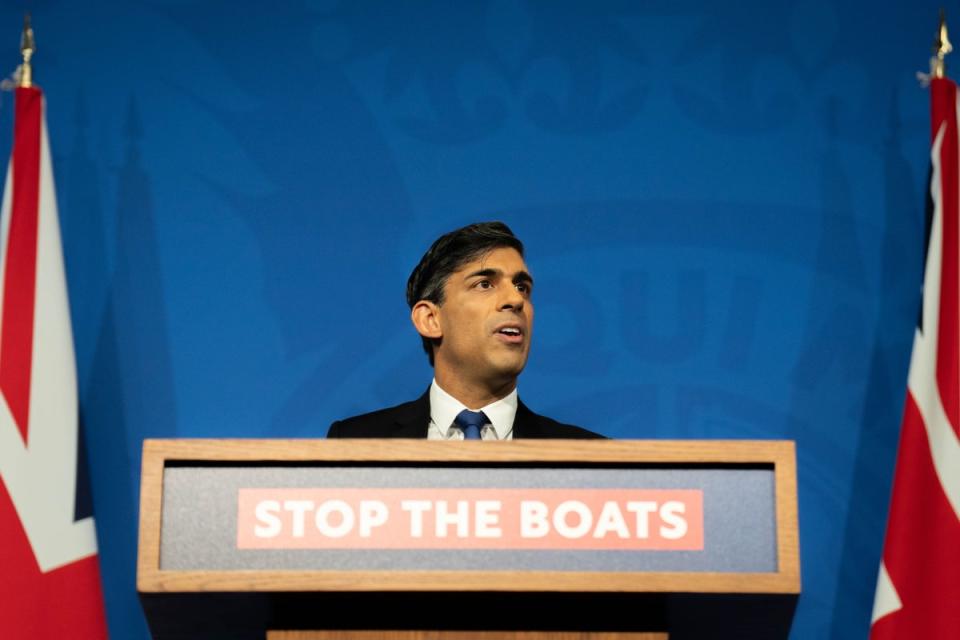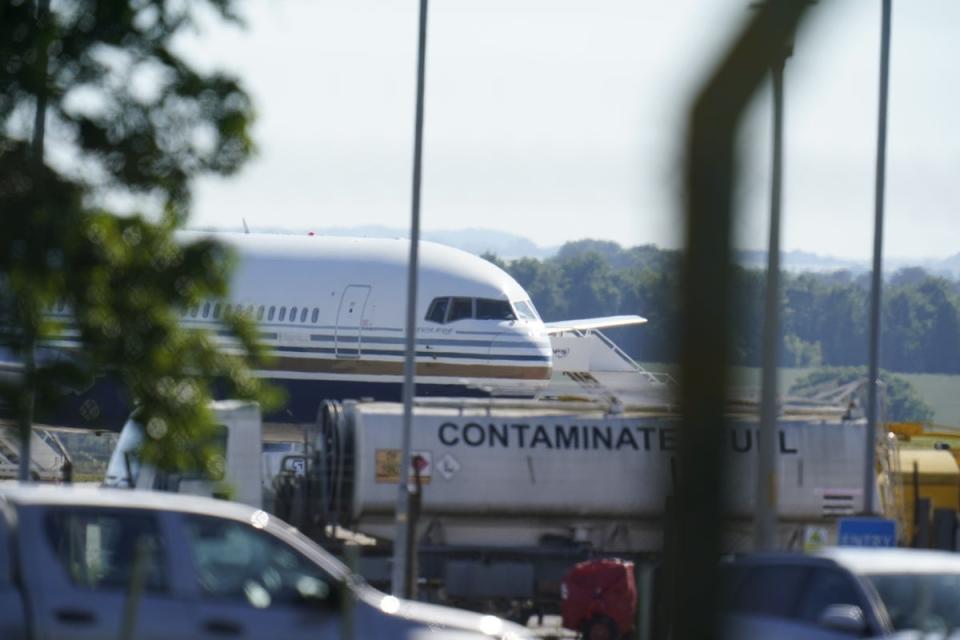Rwanda Bill: What happens now Rishi Sunak has forced deportation plan through
The Prime Minister has said “nothing will stand in our way” of getting flights off the ground after the Government’s Rwanda deportation plan passed through Parliament.
The House of Lords had been engaged in an extended tussle over the Safety of Rwanda (Asylum and Immigration) Bill on Monday, sending it back to the Commons five times in a bid to secure changes.
The unelected chamber ended the deadlock after MPs rejected a requirement that Rwanda could not be treated as safe until the secretary of state, having consulted an independent monitoring body, made a statement to Parliament to that effect.
So what happens now the flagship Rwanda plan has passed the Lords?
There will reportedly be around 150 asylum seekers on the first two or three flights to Kigali, with flights expected to start in July.
“We have prepared for this moment... We’ve increased detention spaces to 2,200,” Mr Sunak announced.
The prime minister said the government had put an airfield on standby and booked commercial charter planes for specific slots to remove the asylum seekers to Rwanda. He added that 500 highly trained individuals had been found to escort “migrants all the way to Rwanda” with 300 more trained in the coming weeks.
The prime minister said that the first flight would leave in 10-12 weeks and he committed to regular flights over the summer “until the boats are stopped”.

Will this plan face any legal challenges?
Refugee charities are poised to support individual asylum seekers chosen to take part in the first flight and to challenge their deportation in the courts.
The bill restricts asylum seekers’ abilities to challenge the policy as a whole, or to challenge the notion that Rwanda is safe, but there may be room for a legal challenge based on their own personal circumstances - such as a history of trafficking, or being LGBTQ+.
After being notified of their removal to Rwanda, an asylum seeker would have seven days to seek to appeal their deportation. A proportion of these appeals will go to the upper immigration tribunal, which then must determine each case within 22 days.
The government has recruited a pool of judges to deal with these appeals so that flights can get off the ground in the summer.
These individual challenges could in theory be taken all the way to the European Court of Human Rights (ECHR), where judges could then issue a ruling that the deportation of that person would be unlawful.
Countries signed up to the ECHR are not bound by these rulings, even though they very rarely ignore them. Mr Sunak has already indicated that he will ignore any ECHR ruling that tries to stop flights to Rwanda.
The civil service union, the FDA, is also considering a legal challenge to the bill . General secretary Dave Penman said the bill left civil servants “in an invidious position, where a minister could instruct them to break international law but their professional obligation, as set out in the civil service code, prohibits them from doing so.”
Mr Sunak said civil servants must deliver instructions from ministers to ignore ECHR rulings. He said he had amended guidance for civil servants to make it clear that they need to follow directions from ministers, even if the directions go against international law.

Who else could be sent to Rwanda?
There are more than 55,500 asylum seekers who are in the UK after arriving irregularly since March 2023. These migrants have had their cases paused by the Home Office as the government waits to see if its policy of sending people to Rwanda will succeed.
The “perma-backlog” has been caused by the government’s Illegal Migration Act, which bans ministers from granting asylum to anyone who entered the UK illegally on or after 7 March 2023. The act also requires the government to remove illegal migrants who entered the country after 20 July 2023, when the act received royal assent.
Thinktank the Institute for Public Policy Research has estimated that more than 55,000 people are stuck in this limbo.
More than 24,000 of them have been issued with letters warning them that they are being considered for removal from the UK.
How much does this all cost?
The spending watchdog the National Audit Office recently said that if 300 people are eventually sent to Rwanda, the cost will amount to £1.9m per person.
The UK government had paid £240m to Rwanda by the end of 2023, however the NAO says that the total cost will be at least £370m over five years.
Britain will spend as much as £150,874 on processing and operational costs for each asylum seeker sent to Rwanda.
Where will the asylum seekers stay when they get to Rwanda?
Asylum seekers who arrive in Kigali will be housed in the Hope hostel, which has capacity for 200.
The government had promised that after three months in this hostel the asylum seekers would then be moved on to more permanent homes. However it emerged this month that a number of homes earmarked for migrants had been sold to locals.
Some 70 per cent of the 163 homes thought to be for UK asylum seekers have now reportedly been sold.

 Yahoo News
Yahoo News 
